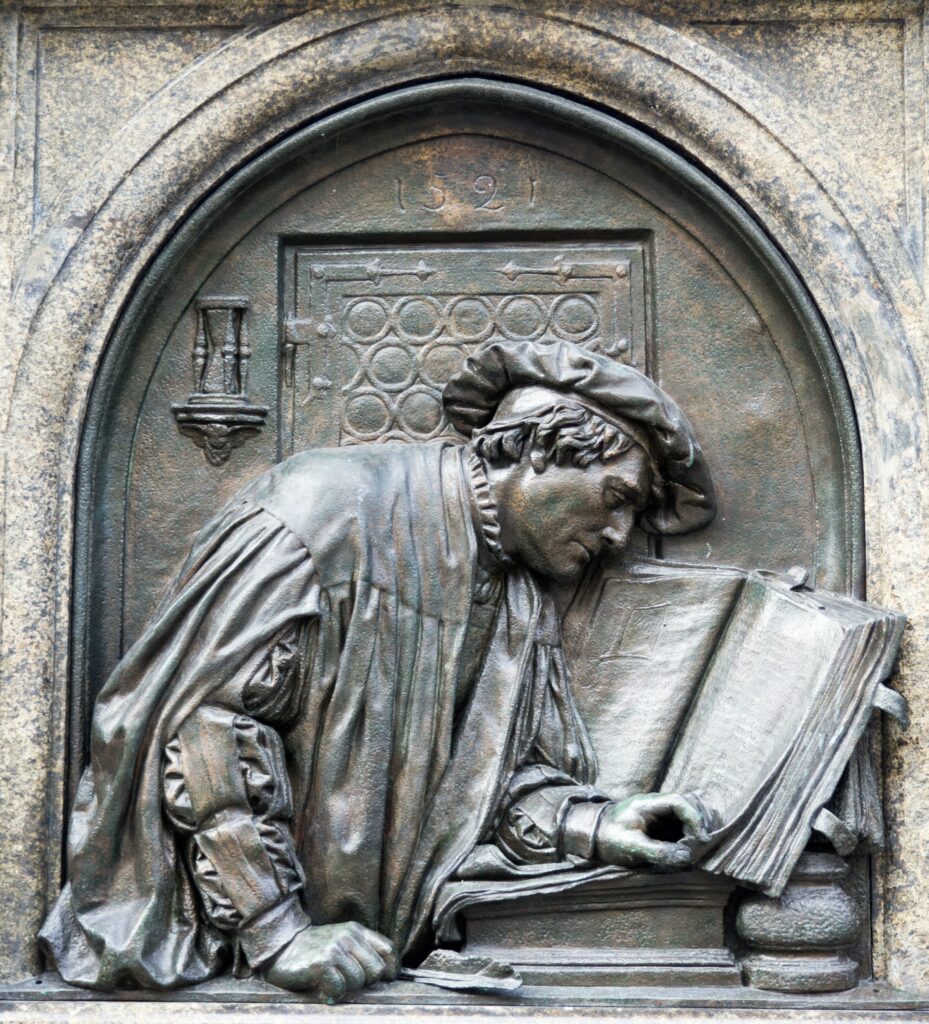
As the wealthy rise higher in the circles of power and influence, they can get the pope to appoint their sons—legitimate or illegitimate—to other church offices, if the price is right. King James V of Scotland, grandfather of the more famous King James, got his illegitimate sons appointed abbots; there’s a good living in that, after all. In about 20 years, in 1513, Leo X will become pope, saying, “Let us enjoy the papacy.” One observer said that Leo “would have been a good pope, if only he had been religious.” A Catholic historian described Leo’s court as filled with “extravagant expenditure in card-playing, theatres and all manner of worldly amusements. … The iniquity of Rome exceeded that of the ecclesiastical princes of Germany.”
And with organizational cynicism comes moral cynicism. If you’re powerful enough, you’ll be rich. And if you’re rich enough, you can do anything you want and simply buy forgiveness.
More than 200 years before Leo X, Dante had put popes in the lowest circle of hell. And now, 20 years before Leo X, in 1492, the very month Columbus sets sail for the Indies, Rodrigo Borgia becomes pope under the name Alexander VI. His corruption and immorality seem unending. He appoints his relatives cardinals, including an illegitimate son, and he appoints another son, aged 16, as archbishop of Valencia. He readily acknowledges other sons and daughters; his daughter Lucretia Borgia is the embodiment of immorality and corruption. He has several mistresses, including the sister of a cardinal. He appoints wealthy men as cardinals in return for huge sums of money. He sponsors orgies in the Vatican itself. To him, nothing is sacred. And he is the pope, the vicar of Christ, the servant of the servants of God.
After Alexander, Pope Julius II will turn the papacy into a military power, enriching the church through acquisition of lands and political intrigue.
So the leaders have given up being seriously religious. With their riches they buy forgiveness—they call that indulgences—and many of them just quit trying to be the right kind of person. In his History of the Christian Church, Philip Schaff writes,
“The story ran that a Saxon knight went to Tetzel and offered him 10 thaler for a sin he had in mind to commit. Tetzel replied that he had full power from the pope to grant such an indulgence, but that it was worth 80 thaler. The knight paid the amount, but some time later waylaid Tetzel and took all his indulgence-moneys from him. To Tetzel’s complaints the robber replied that thereafter he must not be so quick in giving indulgence from sins not yet committed.”
Once the indulgence money starts pouring in, the church is not inclined to discourage it. Under Leo X and his successors, the indulgence money helps build St. Peter’s Basilica in Rome.
Perhaps the worst of it is that power brings arrogance, and arrogance brings tyranny. The church will tolerate no rivals; its people must conform. Heretics are dealt with harshly, as an example to others who might get unapproved ideas.
John Huss, the preacher of Prague around 1400, argues, among other things, that a church leader who is in mortal sin has no authority from God. He is promised safe conduct to the Council of Constance and then nearly starved in prison before being called to the cathedral at 6 am, expecting to offer his defense. No defense is allowed; after waiting outside for several hours, he enters the cathedral to hear his condemnation read. No one present objects. Huss says, “I commit myself to the most gracious Lord Jesus” before he is escorted to the public square, chained to a stake, and burned to death.
Beginning just a few years ago in 1478, the infamous Spanish Inquisition will condemn alleged heretics at will, with or without proof, burn them alive, and take their property to enrich the inquisitors and their friends.
Savonarola, the popular preacher of righteousness in Florence, calls out the corruption of the Roman church and Pope Alexander in particular. The pope orders him tortured, hanged, and his body burned and the ashes thrown in the river.
Photo by Wim van ‘t Einde on Unsplash

Leave a reply. Keep it clean.